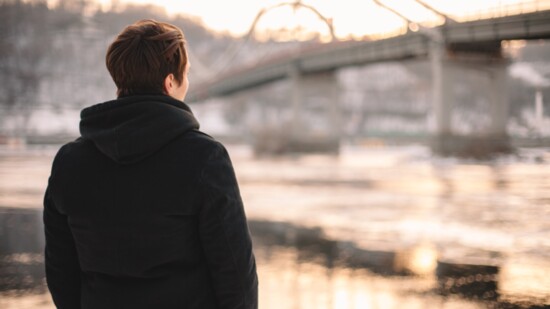When you think of “health,” you typically think of the physical stuff. Your posture, cholesterol levels, and maybe some blood tests here and there. But really, that’s only 20% of the whole picture.
The remaining 80% is what Crossover Health is out to solve. After all, the traditional sick model doesn’t consider your social indicators, alcohol use, partner violence, and other factors that contribute to your overall well-being. When you factor in the variables of isolation and waning mental health due to COVID-19, those physiological concerns are only exacerbated. Enter Crossover Health.
The client approach at Crossover Health reflects these sentiments, and then some. They’re keen interpreters of the traditional sick care model, aware that it only captures a fraction of our overall health needs. In response, Crossover doctors and specialists make it a priority to ask about that remaining 80%. From inquiries about alcohol use, partner violence, and mental health to questions related to housing insecurity and financial instability, every fathomable aspect of your well-being is accounted for with Crossover Health.
Throughout 2021, as COVID-19 claimed households and livelihoods, Crossover Health began screening for a simple-yet-crucial metric: loneliness. According to Dr. Stephen Ezeji-Okoye, loneliness isn’t just a phrase anymore - it’s a legitimate health struggle: “Loneliness is often misunderstood and easily subjective - often defined as the self-perceived gap between the expectations and reality of one’s social connections. Due to stigma and shame, it’s often hidden from view.” This is what Crossover Health is centered around - quelling the modern stigma and shame placed upon commonly-faced lifestyle and mental health struggles, while tending to that remaining 20%, be it a bad hip or aching bone.
Out of the over 26,000 patients they’ve screened since early 2021, Crossover Health found that 1-in-4 surveyed positive for loneliness. Out of those lonely folk, 49% of them were anxious, depressed, or an unsettling combination of the two. But most interestingly is the steady rate of loneliness throughout the past two years, despite COVID vaccine rollouts and improved rates of anxiety and depression. Nonetheless, loneliness remains - but the tunnel needn’t be so void of light.
This plague of loneliness, fueled by elements of anxiety and depression, is exactly what Crossover Health specialists are out to address. Humans require a sense of belonging, of community, to feel like ourselves. Without that steadiness of relationships, our physical health can soon follow suit. This is especially true in this COVID-induced era of isolation. Loneliness is on the rise, and when it lingers for too long, it can seem unbreakable. With the right help, however, feeling like yourself is just a few steps away.
If loneliness has you in a slump, or you’re simply unmotivated due to social isolation, Crossover Health is here to lend a hand. Along with self-care practices to keep you in tune, Crossover Health professionals can offer counseling to keep you above water. Visit their website at be-well.crossoverhealth.com for tips, tricks, and support throughout your lonely phase.





